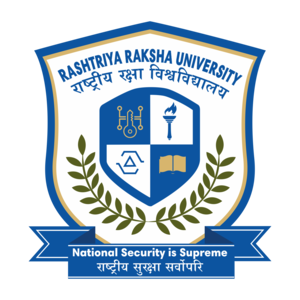The Inaugural Orientation Programme for the new academic session 2025-26, was enriched by the presence of Mr. Ruwan John Uduwerage Perera, Director of Policing, Criminology & Justice at the University of East London, who delivered an inspiring special lecture to all students and faculty members.
The lecture was centered on the theme: “Reimagining Police Strategies – Advancing from Problem-Oriented and Evidence-Based Policing to a Solution-Oriented Future.”
Mr. Perera highlighted how modern policing must evolve beyond traditional frameworks. While problem-oriented and evidence-based policing remain crucial, he emphasized the need to integrate solution-oriented approaches that not only respond to crime but also create proactive strategies for community trust, resilience, and long-term safety.
Key takeaways from the lecture emphasized the importance of bridging the gap between theory and practice by applying academic research to real-world policing challenges, while also shifting from a reactive to a proactive approach that prioritizes prevention over mere response.
Mr. Perera further highlighted the need to harness community partnerships as a foundation for building mutual trust and accountability, alongside adapting to evolving societal needs through innovative policing strategies that ensure both justice and fairness.
The lecture provided a fresh perspective for students of criminology, law, and policing studies, motivating them to critically rethink how justice systems can transform to meet future challenges.
Roundtable Conference: Solution-Oriented Policing
Alongside the following day, Mr. Perera chaired a Roundtable Conference that brought together puducherry police, students, faculty, and professionals to discuss “Solution-Oriented Policing: How Police Can Work Together in Community Engagement.”
The dialogue explored practical strategies for knowing the public perspective, improving police-community relations, and designing systems that foster cooperation rather than conflict.
The roundtable discussion underscored the importance of active listening and dialogue between law enforcement and citizens, recognizing that community voices play a vital role in shaping effective crime prevention strategies. It was highlighted that collaborative engagement can reduce distrust and enhance police legitimacy, while also paving the way for a future-ready policing model that embraces diversity, inclusion, and evolving social expectations. Further, the session emphasized the need for a mediator between the public and law enforcement a bridge that can foster better understanding and cooperation ensuring that policing becomes more solution-oriented rather than problem-oriented.
The two-day engagement with Mr. Perera was both insightful and thought-provoking. It not only introduced new students to the dynamic field of criminology and policing studies but also reinforced the vision of creating innovative, solution-driven approaches to justice.
Such academic collaborations provide an invaluable platform for our students and faculty to learn directly from international experts and contribute to shaping the future of policing and community safety.

.jpg)






.jpeg)



.JPG)
.jpeg)


0 Comments